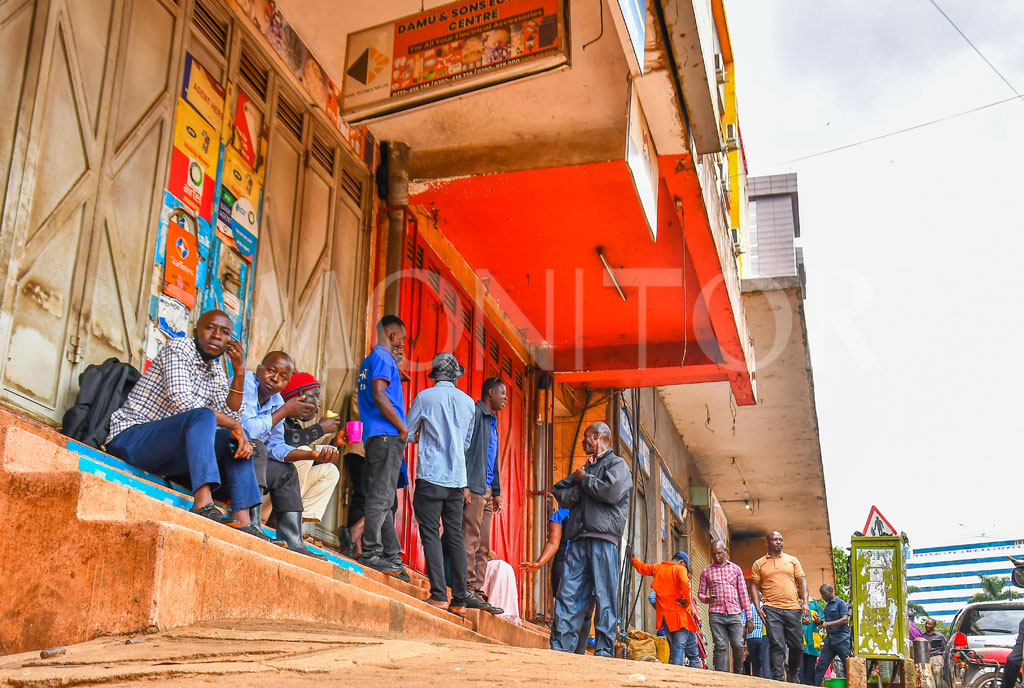Businesses shut down across Uganda in tax protest

Business owners sit outside their locked shops during a traders' strike against high interest rates and taxes, including a VAT rate of 18 percent and a new levy on imported clothing, on April 16, 2024, in Kampala. PHOTO | MONITOR
What you need to know:
- The week-long action was launched by the Federation of Uganda Traders Association on Tuesday and has spread from the capital Kampala to many other parts of the country.
Kampala. Businesses shut down in major towns and cities across Uganda on Wednesday in protest at high taxes and a newly enforced revenue collection system.
The week-long action was launched by the Federation of Uganda Traders Association on Tuesday and has spread from the capital Kampala to many other parts of the country.
"We have called on all businesses in the country to close in protest until the government hears our voice," FUTA president John Kabanda told AFP.
"We are pressing ahead with the strike and we are determined to close for even a month until the government acts on our demands."
Shops and other businesses including butchers, bakers and eateries have shut their doors, protesting at high interest rates and taxes, with VAT at 18 percent, and a new levy on imported clothing.
The action was triggered by the government's enforcement of a tax regime known as EFRIS requiring that all receipts and invoices submitted to the revenue authority must be digital.
Uganda's minister of state for finance, Haruna Kyeyune Kasolo, said the businesses were protesting because they did not understand the new system.
"The striking traders must appreciate the new system because it is for the good of their businesses while enabling the country to collect taxes as opposed to (relying on) foreign funding," he told AFP.
But local traders voiced anger at the tax burden they are facing.
"I joined the protest to save my business. We are tired of paying high taxes yet we have other high operational costs," said Bernard Musoke, a 48-year-old who runs a mixed retail shop in Kampala's main commercial district.
"Should we continue to pay high taxes for the government officials and parliament to embezzle and live in luxury?"
Sylvia Atwenda, a 31-year-old mother of three who trades in cosmetics and hair accessories, told AFP that people had set up businesses to support their families, not fund the government.
"Instead of taking away all that we have, we appeal to the government to give us subsidies and support our businesses to grow and not kill them."





